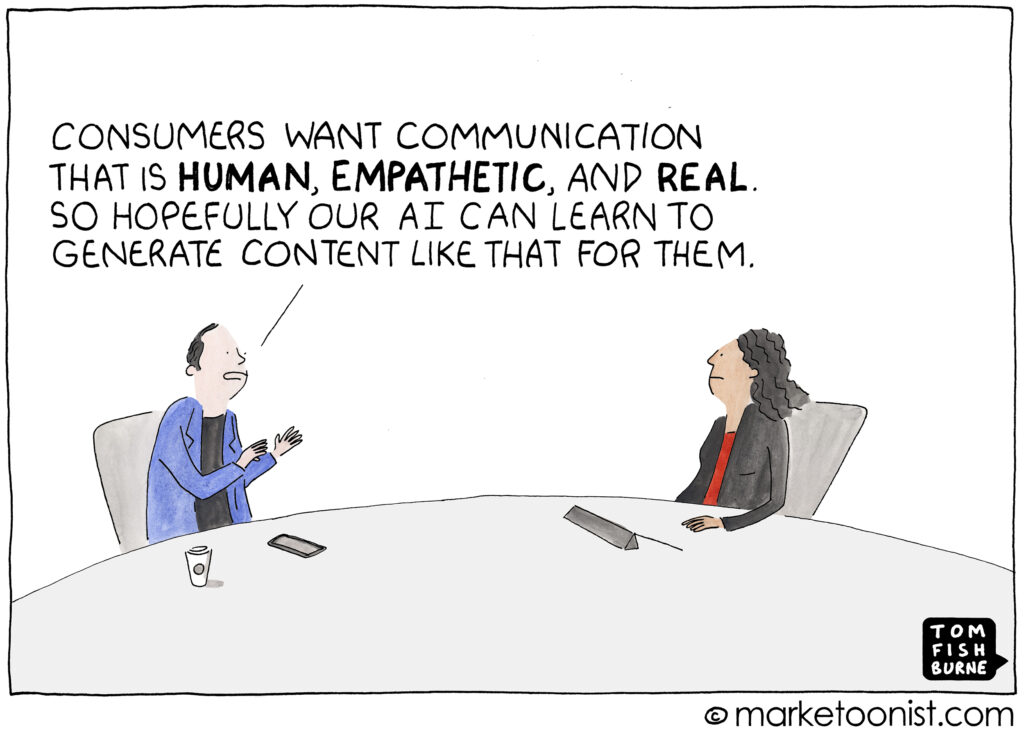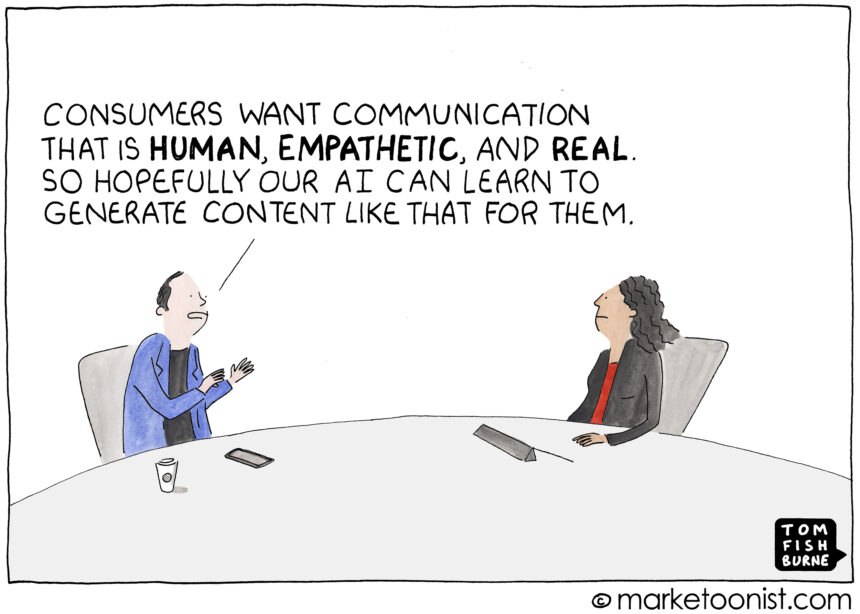As is often the case with poorly understood tech that promises to change the world, consumers worry about its ethics and human impact. Yet a vast majority of these skeptics will use (and love) genAI during 2024, whether they know it or not. Like it or not, know it or not, genAI will seep into peoples’ lives seamlessly and invisibly.
Tech companies are embedding genAI capabilities in their platforms and tools and in the apps and products that people use every day: Adobe Photoshop, Google’s Gemini or Circle to Search, Microsoft’s LinkedIn, Samsung’s Galaxy S24, and many more. In November last year, Forrester predicted that half of global firms will experiment with customer-facing GenAI.
While companies race to incorporate AI internally and externally, consumer adoption is still in its infancy. Consumers are apprehensive: Although they see the utility of genAI, they worry about its ethical implications. Together with my colleague Audrey Chee-Read we just published a brand new report “The State Of Consumer Usage Of Generative AI, 2024” have been investigating consumers’ genAI usage and attitudes:
- US Consumers Are Ahead Of Those In Other Countries Due To Sluggish Regulations. For genAI, consumer usage is higher and consumer attitudes are more positive in the US than in the UK, France, Germany, or Italy. Countries in the EU are introducing and enforcing new rules and regulations so that organizations adopt AI technology in reliable ways, while the US does not have any federal regulations around consumers’ AI usage. Large language models (LLMs) are also based on available training data, and much of that data is in English, inherently making the output of genAI platforms more effective for English-dominant countries.
- LLMs Dominate GenAI Usage, With Use Focused On Search-Related Tasks. Tools like Bing Chat, ChatGPT, Google Gemini (formerly Bard), OpenAI’s DALL-E, and Snapchat’s AI Chatbot dominate usage. However, there are many smaller unbranded native genAI tools in major platforms that consumers may not attribute to genAI technology, such as WhatsApp’s AI stickers or Spotify’s podcast translation.
- Consumers’ Knowledge Of GenAI Will Continue To Be Disjointed. GenAI use cases largely dominate consumers’ understanding of it, but most consumers have not actually used genAI. A large volume of respondents fall into the “don’t know” category in response to questions about it. However, among those who claimed some understanding, one group focused on the human-imitation nature of the technology. Another’s understanding involved the creation of new information, content, and data. And a third group relayed negative associations rather than understanding.
- Consumers Lack Trust In GenAI’s Output Quality And Use By Companies. Consumers lack trust in genAI in two main ways: 1) the accuracy of the results that the technology produces and 2) the ways that companies use the technology and data that consumers enter. Based on Forrester’s December 2023 Consumer Pulse Survey of online adults who had heard of genAI, only 29% agreed that they would trust information from genAI. Even more significant is concern about transparency, with 73% of genAI-aware online adults agreeing that companies should disclose when they use the technology to interact with them.
- Consumers See The Utility Of GenAI But Are Torn About Its Potential Effects. Consumers are split about how genAI will impact the future. Many appreciate its utility. Among online adults in Forrester’s December 2023 Consumer Pulse Survey who had heard of genAI, 50% agreed that genAI would make it easier to find information online and 43% agreed that genAI would make it easier to learn new things. However, there is less consensus about the technology’s long-term effects. 45% of online adults agreed that genAI posed a serious threat to society.
My colleague Jay Pattisall is working on a new piece of research on how brands will leverage genAI and how they are actively building brand AI models (stay tuned!). Moving forward, brands will be able to automatically create custom content conversations with consumers as per this excellent cartoon from Tom Fishburn (thanks Tom for allowing me to share your cartoon, and for anyone who does not follow your work, I recommend they have a look at the Marketoonist):

Clients wanting to find out more on consumers’ perceptions of genAI and discuss implications for their business can read the full report here or schedule a guidance session.
We are also working a new piece of research that looks into how genAI will change relationships with brands and consumers. Will brand become conversational through genAI-powered chatbot? What does that really mean? Is this long-lasting of a personal digital assistant – some sort of an algorithm of you – interact with brands on your behalf? What are the risk of brand disintermediation?
If you’re interested to share your point of view or want to brief us on consumer-centric projects you’re working on, feel free to contact us.








